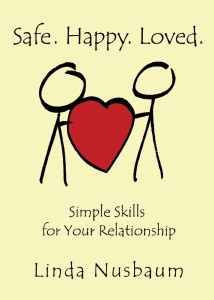Oftentimes in our relationships our partners will speak and act in ways that seem very strange to us. We will wonder why they are doing what they are doing or saying what they are saying, and our brain will immediately figure out what is wrong with them.
After they finish, we might even tell them that the reason they are talking the way they are talking is because of how they grew up and how they now sound like their parent and how this is something that isn’t resolved.
Sharing Ideas the Wrong Way Makes People Defensive

Many couples engage in this kind of analysis for their mate. And it probably makes a lot of sense to the one analyzing. The problem is that their partner isn’t open to their thoughts. This is something that makes them feel bad or feel seen as stupid. If you do this, I bet they don’t even listen to you, and if they do, they will defend themselves or argue back.
None of us want to hear our mate tell us what is wrong with us. No one enjoys hearing our partner describe our dysfunction. And if we are the one who is doing the analysis, we just can’t help it. That’s where our mind goes and we just want to share the insights that we are witnessing.
But here’s the deal. If your partner doesn’t benefit from your great conclusions, what is the point of sharing them? We probably tell them what we think because it makes us feel good about ourselves, that we have figured out why they act the way they do.
Communicate In Terms of Your Needs and How Things Affect You

But it lands on deaf ears. They don’t hear it. They don’t appreciate it and they don’t want it. What they really want is something else from us. Instead of analyzing, why not just say what happens to you when they do what they are doing?
Try and tell them that when they leave their dirty clothes on the floor you feel put upon to pick them up. That way, you’re asking if they can be a little more considerate of what you need, and you’re saying it in the kindest way possible. Contrast that with saying, “You are just like your (someone from their family).”
One way gets them to understand the impact on YOU. The other way tells them there is something wrong with them. I want you to help your partner adjust to you, so I invite you to think about how you might want to take care of yourself in a different way and get what you want. You might want his attention to change something.
Being Open and Vulnerable Helps Affect Real Change

I know being kind when you have had your feelings hurt is hard, because this is vulnerability and that is very hard for some of us. But it is the way into changing someone’s behavior.
When our partners see what their actions do to us, they are willing to change those actions. When we discuss what they did and analyze what happened, they can tune us out.
I know being in the mind is sometimes satisfying, but it keeps you separate when what we want for them to do is say, “Wow, you figured me out. Thank you, this is so helpful.” That will never happen. Do something better for yourself instead. You might just get the behavior that you are looking for.
Want to Communicate Your Needs Kindly and Effectively?
Read a Book About Relationships
Learn how to improve communication in your relationship, by reading Linda’s book, Safe. Happy. Loved. Simple Skills for Your Relationship. It just might help you get your needs met more kindly and effectively, helping you both feel happier, closer, and more loved. Give it a read.
Get Couples Counseling
Come in for couples counseling. Couples counseling can help you and your loved one get the most out of your relationship. It'll equip you with coping strategies and tools for communication that can help you argue less and love more.


